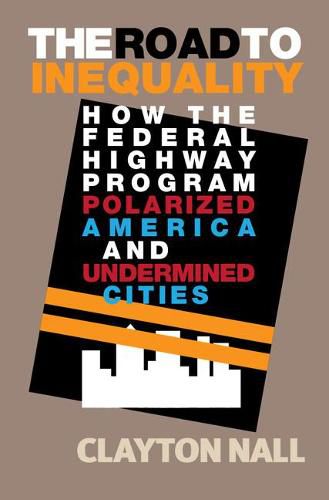Readings Newsletter
Become a Readings Member to make your shopping experience even easier.
Sign in or sign up for free!
You’re not far away from qualifying for FREE standard shipping within Australia
You’ve qualified for FREE standard shipping within Australia
The cart is loading…






The Road to Inequality shows how policies that shape geographic space change our politics, focusing on the effects of the largest public works project in American history: the federal highway system. For decades, federally subsidized highways have selectively facilitated migration into fast-growing suburbs, producing an increasingly non-urban Republican electorate. This book examines the highway programs’ policy origins at the national level and traces how these intersected with local politics and interests to facilitate complex, mutually-reinforcing processes that have shaped America’s growing urban-suburban divide and, with it, the politics of metropolitan public investment. As Americans have become more polarized on urban-suburban lines, attitudes towards transportation policy - a once quintessentially ‘local’ and non-partisan policy area - are now themselves driven by partisanship, endangering investments in metropolitan programs that provide access to opportunity for millions of Americans.
$9.00 standard shipping within Australia
FREE standard shipping within Australia for orders over $100.00
Express & International shipping calculated at checkout
The Road to Inequality shows how policies that shape geographic space change our politics, focusing on the effects of the largest public works project in American history: the federal highway system. For decades, federally subsidized highways have selectively facilitated migration into fast-growing suburbs, producing an increasingly non-urban Republican electorate. This book examines the highway programs’ policy origins at the national level and traces how these intersected with local politics and interests to facilitate complex, mutually-reinforcing processes that have shaped America’s growing urban-suburban divide and, with it, the politics of metropolitan public investment. As Americans have become more polarized on urban-suburban lines, attitudes towards transportation policy - a once quintessentially ‘local’ and non-partisan policy area - are now themselves driven by partisanship, endangering investments in metropolitan programs that provide access to opportunity for millions of Americans.